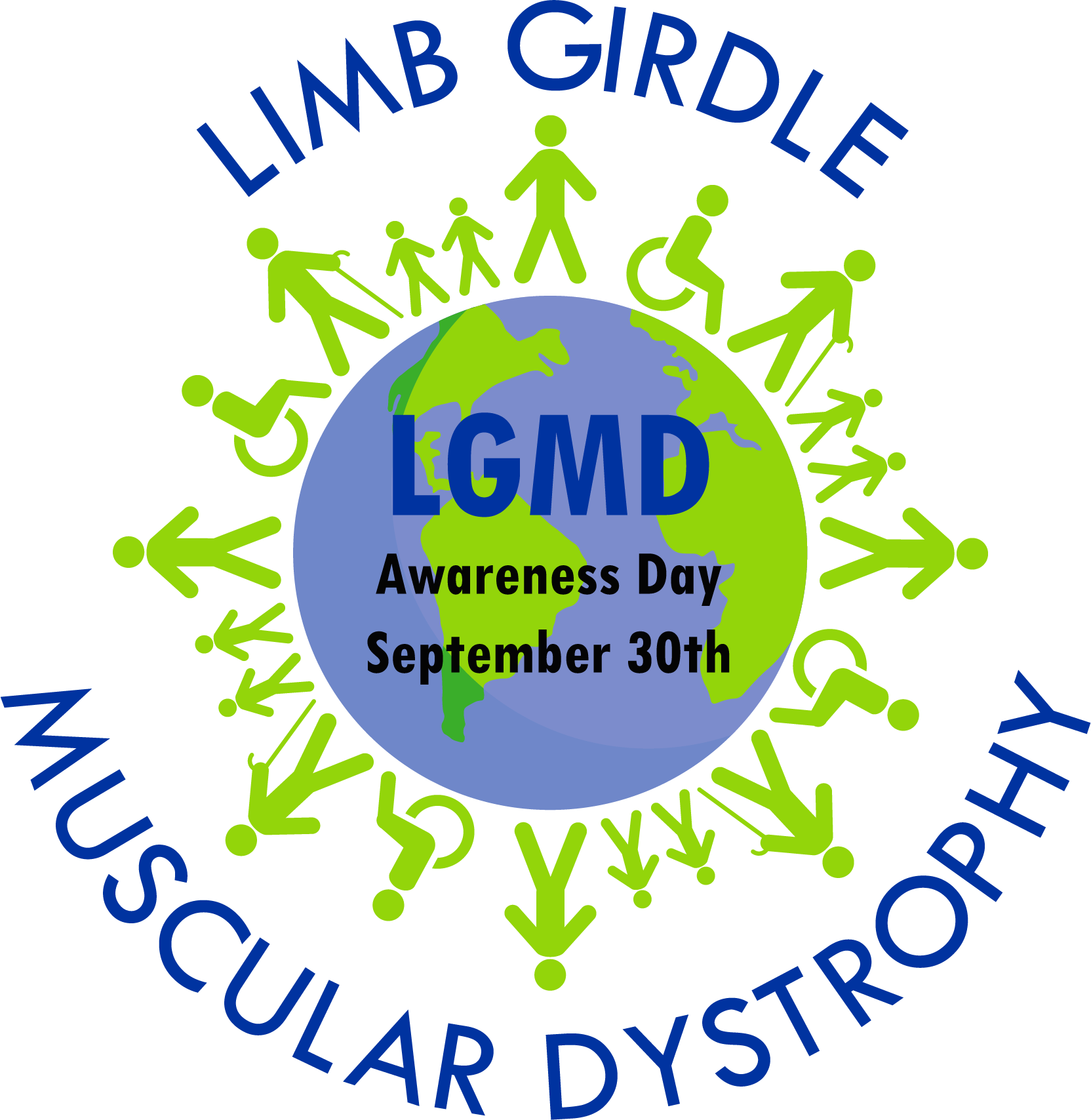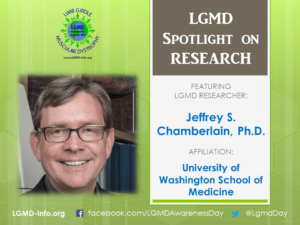LGMD RESEARCHER: Jeffrey S. Chamberlain, Ph.D.
“LGMD SPOTLIGHT ON RESEARCH”
LGMD Researcher: Jeffrey S. Chamberlain, Ph.D.
Affiliation: University of Washington School of Medicine
Role or Position: Professor, McCaw Chair in Muscular Dystrophy, Director, Wellstone Muscular Dystrophy Research Center-Seattle
What education and training did you have to arrive at your current position?
I earned a B.A. and a Ph.D. in Biochemistry, then did post-doctoral training in Molecular Genetics
What led you to follow a career in research and in studying muscular dystrophy in particular?
While working on my Ph.D. I became interested in muscle development and started learning about muscle diseases. I did post-doctoral training studying Duchenne muscular dystrophy and became interested in and intrigued by the concept of gene therapy. When I started my own lab, I decided to focus on gene therapy for the muscular dystrophies as well as on studying the function of the proteins defective in the different dystrophies.
What topics are you studying?
I currently study methods for gene therapy of muscle disorders, including vectors to deliver genes to muscle tissues, gene regulatory cassettes to turn genes on and off in different tissues, and the role of the immune system in dystrophies and in the context of gene therapy. I also study the function and interactions of different proteins that contribute to muscle function and disease, such as dystrophin and FKRP.
How will your work help patients? Is it more scientific in nature or might it become a treatment for LGMDs or MDs in general?
Our work is both scientific and treatment focused. We believe the best way to develop effective treatments is to have a detailed understanding of the basic biology behind various muscle disorders. We use this basic research to guide the development of genes and delivery vehicles needed for safe and effective gene therapy.
What would you like patients and others interested in LGMD to know about research (your own projects and about the field in general)?
Gene therapy has gone from being a futuristic concept to a promising approach to treating inherited disorders. Several gene therapies have now been approved for commercial use and can be prescribed by physicians. I believe that gene therapies are the most promising approach to treating most of the different types of muscular dystrophy. It is also important to realize that the challenges limiting the development of gene therapy for many dystrophies are the same for the various disorders, and that progress in one helps move treatments closer to the clinic for all the dystrophies. Gene therapy trials are in progress for several muscular dystrophies and many more are close to being tested. We are on the verge of a revolution in the development and application of new genetic therapies and I think this is an amazing time to see these new technologies finally beginning to help patients and their families.
What inspires you to continue working in this field?
I’ve worked on muscular dystrophy for 30 years, and am finally witnessing new therapies being applied and working in the clinic. This is the most exciting time of my career and I am thrilled to be able to contribute to the development of new approaches for treating different types of muscle disorders.
How can patients encourage you and help your work?
Funding for scientific research is dropping nationwide, and in many quarters there seems to be almost a war on scientific ideas and principles being taught and explored. The most important thing that patients and family members can do is to encourage members of their local and national governments to support scientific research at Universities nationwide. Almost all the innovative and new approach to therapies, such as gene and cell therapies, are being developed exclusively at Universities before they are eventually taken up by biotech and big pharma.
* * * Please LIKE, COMMENT and SHARE this post to help raise awareness of LGMD!
* * * To learn more about Limb Girdle Muscular Dystrophy (LGMD) or to read more “Spotlight Interviews”, please visit our website at https://lgmd-info.org
#CureLGMD
#LgmdDay2018








